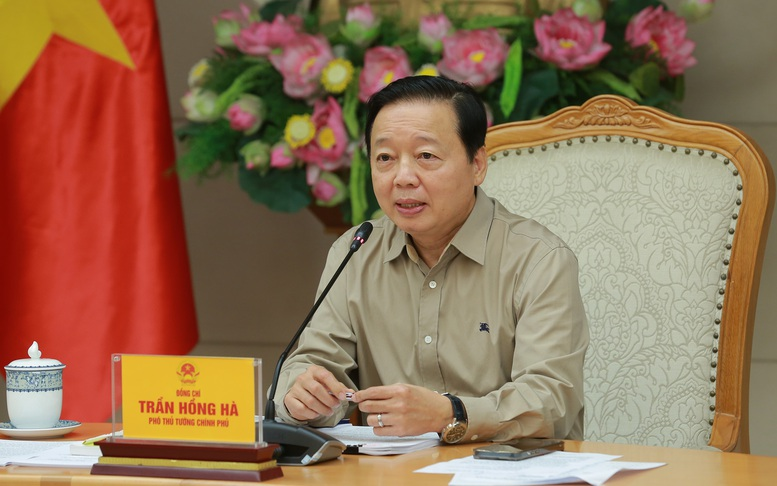At a meeting on 11/9 regarding the national action plan to address air and river basin pollution, deputy prime minister Tran Hong Ha emphasized that environmental pollution, especially air pollution in major cities, has persisted for years and demands fundamental and comprehensive solutions.
According to the deputy prime minister, citizens share concerns about the worsening pollution, but also question the effectiveness of measures that remain on paper.
Therefore, the government leader stated the need for a phased approach that ensures effective pollution control without negatively impacting economic development and the legitimate interests of the people.
 |
Deputy Prime Minister Tran Hong Ha chairs the meeting. Photo: VGP |
Deputy Prime Minister Tran Hong Ha chairs the meeting. Photo: VGP
Concerning urban transport, the deputy prime minister called for exploring economic tools, rather than administrative ones, to manage vehicles that don't meet environmental standards. This means authorities could leverage economic incentives instead of mandatory regulations and penalties.
He also requested financial support for individuals and businesses transitioning to more environmentally friendly vehicles.
The use of economic tools over administrative measures has also been suggested by many experts regarding the shift from gasoline to electric vehicles. Two months ago, associate professor Dr. Nguyen Dinh Tho, deputy director of the Institute of Strategy and Policy on Natural Resources and Environment, mentioned economic tools like carbon credits applied to car manufacturers, rather than individuals. Implementing outright bans could significantly impact people's livelihoods, especially for low-income individuals for whom vehicles are major assets.
Regarding the national action plan to address air pollution for the 2026-2030 period, deputy prime minister Tran Hong Ha said it's a crucial step in mitigating environmental consequences from socio-economic development. After 2030, environmental factors must be integrated into socio-economic development plans, aiming for a green and circular economy.
Hanoi and Ho Chi Minh City, the two cities facing the greatest pollution pressure, should be selected as pilot locations for developing air and water pollution treatment plans. "We must encourage public participation, ensuring citizen support for the policies while avoiding conflicts and incomplete understanding," he said.
Bao Bao












